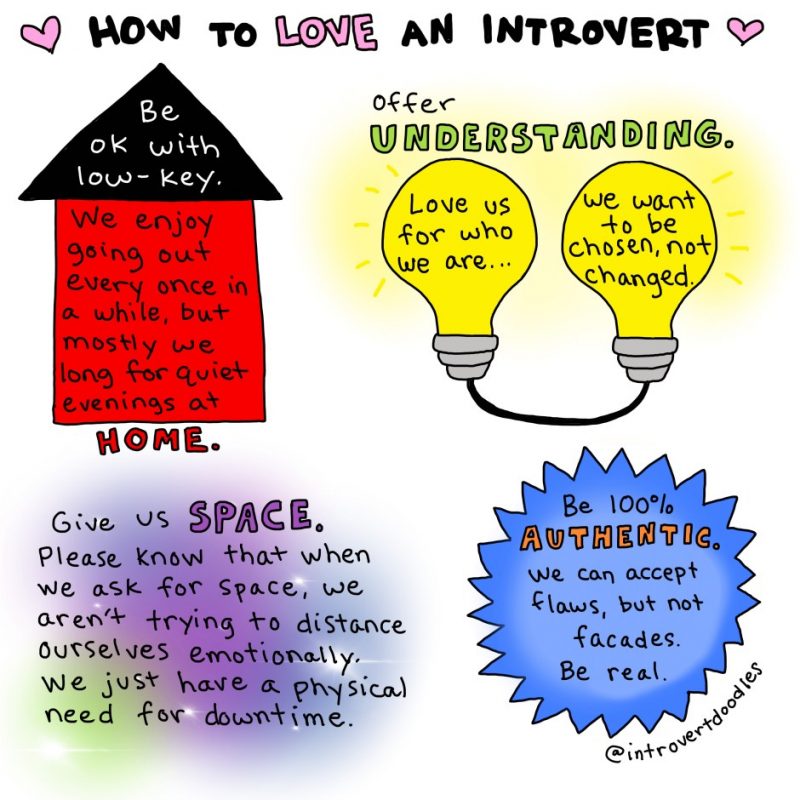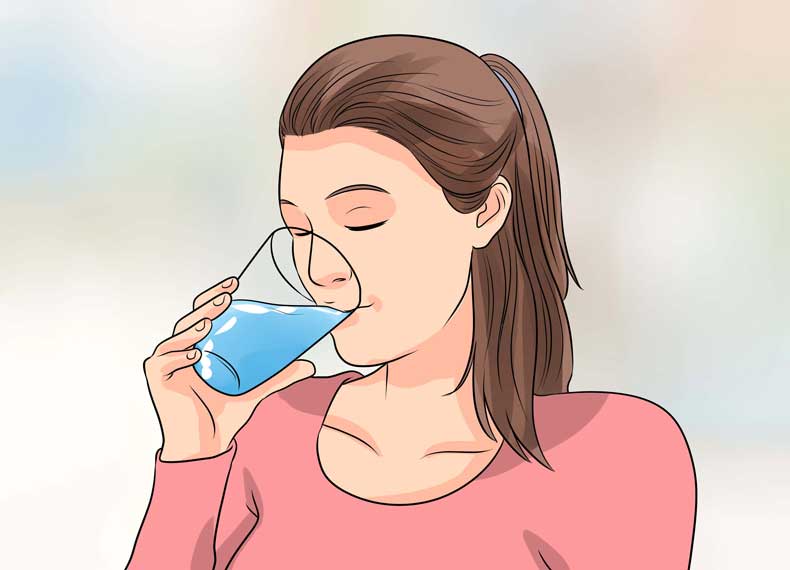How to minimize nervousness
Tips to help ease anxiety
Speaking of Health
Topics in this Post
- Anxiety
- Balance your mental and emotional health
- Family Medicine
- Behavioral Health
- COVID-19
Anxiety often is described as sustained and excessive worry that a person cannot control, and is related many times to the anticipation of a future threat, such as COVD-19 or a traumatic event. At times, anxiety can have a large and negative affect on our daily lives, work, relationships and overall happiness. Anxiety also can manifest as an irritable, worried, restless and debilitating stress response which can last for minutes to days. Most everyone has had anxiety surrounding a stressful situation.
Anxiety becomes an obstacle for a happy, healthy life when it affects our day-to-day lives in these ways:
Emotionally, anxiety can appear as:
- Excessive worry
- Fatigue
- Irritability
- Panic attacks
- Paranoia
- Poor concentration
- Restlessness
- Sleep disturbances
Physically, anxiety can appear as:
- Chest pain
- Diarrhea, stool pattern changes or upset stomach
- Headache
- Increased heart rate
- Muscle aches
- Shaking
- Shortness of breath
- Sweating
The negative effects of anxiety
Left unchecked, anxiety can negatively affect our lives in these ways:
- Interrupting daily life — Causing issues at home, school, work and socially
- Isolating us — Not wanting to participate in normal daily activities or take new steps in life due to fear
- Emotionally — Increasing our risk for depression, suicide and failure to progress in life
- Physically — Increasing our risk for physical distress, nausea, vomiting, diarrhea, constipation, chest pain and tremors
- Mentally — Increasing our risk for financial complications, poor decision-making and poor communication
Tips to help combat anxiety
There are a number of things you can try to help combat anxiety, including:
- Behavioral therapy
- Deep breathing
- Exercise
- Journaling
- Meditation
- Reading
- Socializing, following pandemic guidelines of social distancing, masking and hand hygiene)
- Speaking with your health care provider
- Spirituality
- Thought reframing
When to seek advice or treatment from a medical professional
It's recommended you speak to a health care provider about your anxiety should any of these situations occur:
- Your anxiety becomes an obstacle — In any aspect of everyday living, often causing difficulties for six or more months
- Your anxiety becomes a negative influence in relationships — Creating barriers in life
- Your anxiety leads to isolation — Producing thoughts of hopelessness or helplessness
- Your anxiety controls your life — When your emotional or physical response to excessive worry is controlling your life in some aspect or another
A person with anxiety can seek support from a therapist, medical provider, family member, friend, community support person, crisis line resource or a crisis center. Depending on the severity of your anxiety, a behavioral therapy plan, anti-anxiety medication and/or coping mechanisms may be directed to your personal situation.
Recognition of anxiety is a key factor in dealing with excessive worry and moving forward in life. If you have any of the above symptoms or have difficulty controlling worry in your life, ask yourself if it could be anxiety you're experiencing. It's important to share any concerns of excessive worry with your health care provider so we can help you identify ways to address your anxiety and move past the debilitation of excessive worry.
If COVID-19 has increased your anxiety, learn ways to tame anxiety during the pandemic, and get tips for mindfulness and coping.
Jill Christensen is a Family Medicine nurse practitioner in Waterville, Minnesota.
For the safety of our patients, staff and visitors, Mayo Clinic has strict masking policies in place. Anyone shown without a mask was either recorded prior to COVID-19 or recorded in a non-patient care area where social distancing and other safety protocols were followed.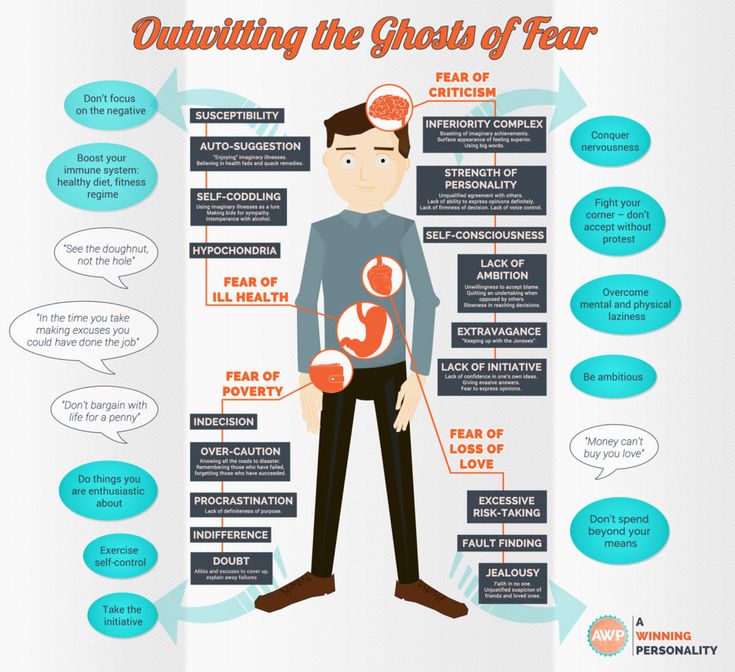
Topics in this Post
- Anxiety
- Balance your mental and emotional health
- Family Medicine
- Behavioral Health
- COVID-19
Self-care tips during the COVID-19 pandemic
Overwhelmed by anxiety?
COVID-19 during winter: 8 things you can do to mentally prepare
15 Simple Ways to Relieve Stress and Anxiety
Stress and anxiety are common experiences for many people. In fact, millions of adults in the United States say they feel stress or anxiety daily.
Many people deal with stress every day. Work, family issues, health concerns, and financial obligations are parts of everyday life that commonly contribute to heightened stress levels.
What’s more, factors such as genetics, level of social support, coping style, and personality type influence a person’s vulnerability to stress, meaning that some people are more likely to become stressed than others (1, 2, 3).
Plus, research shows that parents, people in professions such as healthcare and social work, People of Color, and LGBTQIA+ individuals are more likely to have higher stress levels (4, 5, 6, 7).
Minimizing the chronic stress of daily life as much as possible is important for overall health. That’s because chronic stress harms health and increases your risk of health conditions such as heart disease, anxiety disorders, and depression (8, 9, 10).
It’s important to understand that stress isn’t the same as mental health disorders such as anxiety and depression, which require treatment from medical professionals. Although the tips below may relieve many types of stress, they may not help people with these conditions (11).
Here are 15 evidence-based ways to relieve stress.
If you’re feeling stressed, moving your body on a consistent basis may help.
A 6-week study in 185 university students found that participating in aerobic exercise 2 days per week significantly reduced overall perceived stress and perceived stress due to uncertainty. Plus, the exercise routine significantly improved self-reported depression (12).
Plus, the exercise routine significantly improved self-reported depression (12).
Many other studies have shown that engaging in physical activity helps reduce stress levels and improve mood, while sedentary behavior may lead to increased stress, poor mood, and sleep disturbances (13, 14).
What’s more, regular exercise has been shown to improve symptoms of common mental health conditions such as anxiety and depression (15, 16).
If you’re currently inactive, start with gentle activities such as walking or biking. Choosing an activity that you enjoy may help increase your chances of sticking to it in the long term.
SummaryRegular exercise may help reduce stress and improve symptoms related to common mental health conditions such as anxiety and depression.
Your diet affects every aspect of your health, including your mental health.
Studies show that people who follow a diet high in ultra-processed foods and added sugar are more likely to experience higher perceived stress levels (17, 18, 19).
Being chronically stressed may lead you to overeat and reach for highly palatable foods, which may harm your overall health and mood.
Plus, not eating enough nutrient-dense whole foods may increase your risk of deficiencies in nutrients that are essential for regulating stress and mood, such as magnesium and B vitamins (20).
Minimizing your intake of highly processed foods and beverages and eating more whole foods such as vegetables, fruits, beans, fish, nuts, and seeds can help ensure that your body is properly nourished. In turn, this may improve your resilience to stress.
SummaryFollowing a nutrient-dense diet and limiting ultra-processed foods may provide your body with the nutrients it needs for optimal health and decrease your risk of deficiencies in nutrients that help regulate stress.
Smartphones, computers, and tablets are an unavoidable part of everyday life for many people.
While these devices are often necessary, using them too often may increase stress levels.
A number of studies have linked excessive smartphone use and “iPhone addiction” with increased levels of stress and mental health disorders (21, 22, 23, 24).
Spending too much time in front of screens in general is associated with lower psychological well-being and increased stress levels in both adults and kids (25, 26, 27).
Furthermore, screen time may negatively affect sleep, which may also lead to increased stress levels (28).
SummaryMinimizing screen time may help reduce stress and improve sleep in both children and adults.
Several vitamins and minerals play an important role in your body’s stress response and mood regulation. As such, a deficiency in one or more nutrients may affect your mental health and ability to cope with stress.
Plus, some studies show that certain dietary supplements may help reduce stress and improve mood.
For example, when you’re chronically stressed, your magnesium levels may become depleted.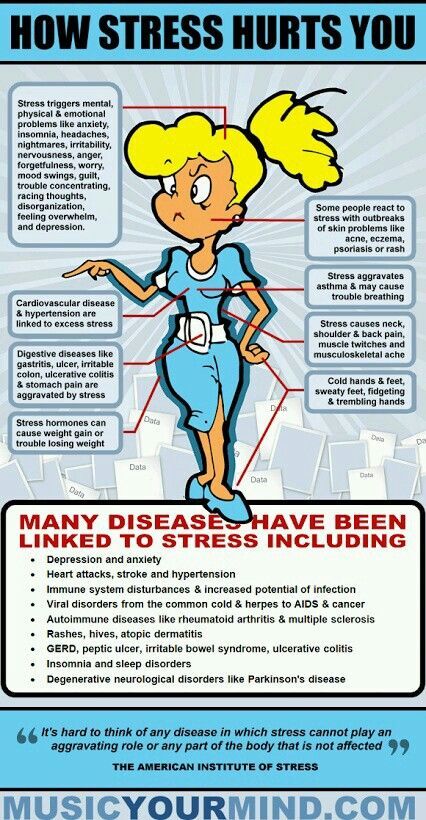
Since this mineral plays an important role in your body’s stress response, it’s important to make sure you’re getting enough each day. Supplementing with magnesium has been shown to improve stress in chronically stressed people (20, 29).
An 8-week study in 264 people with low magnesium found that taking 300 mg of this mineral daily helped reduce stress levels. Combining this dose of magnesium with vitamin B6 was even more effective (30).
Other supplements, including rhodiola, ashwagandha, B vitamins, and L-theanine, have been shown to help reduce stress as well (31, 32, 33, 34).
However, dietary supplements may not be appropriate or safe for everyone. Consult a healthcare professional if you’re interested in using supplements to help relieve stress.
SummaryCertain supplements may reduce stress levels, including magnesium, L-theanine, rhodiola, and B vitamins.
Setting aside time to practice self-care may help reduce your stress levels. Practical examples include:
Practical examples include:
- going for a walk outside
- taking a bath
- lighting candles
- reading a good book
- exercising
- preparing a healthy meal
- stretching before bed
- getting a massage
- practicing a hobby
- using a diffuser with calming scents
- practicing yoga
Studies show that people who engage in self-care report lower levels of stress and improved quality of life, while a lack of self-care is associated with higher risk of stress and burnout (35, 36, 37).
Taking time for yourself is essential in order to live a healthy life. This is especially important for people who tend to be highly stressed, including nurses, doctors, teachers, and caretakers.
Self-care doesn’t have to be elaborate or complicated. It simply means tending to your well-being and happiness.
Exposure to certain scents via candles or essential oils may be especially calming. Here are a few relaxing scents:
- lavender
- rose
- vetiver
- bergamot
- Roman chamomile
- neroli
- frankincense
- sandalwood
- ylang-ylang
- orange or orange blossom
- geranium
Using scents to boost your mood is called aromatherapy. Several studies suggest that aromatherapy can decrease anxiety and improve sleep (38, 39).
Several studies suggest that aromatherapy can decrease anxiety and improve sleep (38, 39).
SummarySelf-care is an important part of managing stress. A few simple strategies you may want to try are yoga, lighting candles, taking baths, and reading a good book.
Caffeine is a chemical found in coffee, tea, chocolate, and energy drinks that stimulates your central nervous system.
Consuming too much may worsen and increase feelings of anxiety (40, 41).
Plus, overconsumption may harm your sleep. In turn, this may increase stress and anxiety symptoms (42).
People have different thresholds for how much caffeine they can tolerate. If you notice that caffeine makes you jittery or anxious, consider cutting back by replacing coffee or energy drinks with decaffeinated herbal tea or water.
Although many studies show that coffee is healthy in moderation, it’s recommended to keep caffeine intake under 400 mg per day, which equals 4–5 cups (0. 9–1.2 L) of coffee (43).
9–1.2 L) of coffee (43).
Still, people who are sensitive to caffeine may experience increased anxiety and stress after consuming much less caffeine than this, so it’s important to consider your individual tolerance.
SummaryLarge amounts of caffeine may increase stress and anxiety, although people’s sensitivity to caffeine varies greatly.
Social support from friends and family may help you get through stressful times and cope with stress (44).
A study that in 163 Latinx young adults in college associated lower levels of support from friends, family, and romantic partners with loneliness, depressive symptoms, and perceived stress (44).
Having a social support system is important for your overall mental health. If you’re feeling alone and don’t have friends or family to depend on, social support groups may help. Consider joining a club or sports team or volunteering for a cause that’s important to you.
SummaryHaving strong social ties may help you get through stressful times and is important for overall mental well-being.

Not all stressors are within your control, but some are. Putting too much on your plate may increase your stress load and limit the amount of time you can spend on self-care.
Taking control over your personal life may help reduce stress and protect your mental health.
One way to do this may be to say “no” more often. This is especially true if you find yourself taking on more than you can handle, because juggling many responsibilities may leave you feeling overwhelmed.
Being selective about what you take on — and saying “no” to things that will unnecessarily add to your load — can reduce your stress levels.
Plus, creating boundaries — especially with people who add to your stress levels — is a healthy way to protect your well-being. This can be as simple as asking a friend or family member not to stop by unannounced or canceling standing plans with a friend who tends to create drama.
SummaryIt’s important to create healthy boundaries in your life by declining to take on more than you can handle.
Saying “no” is one way to control your stressors.
Another way to take control of your stress is to stay on top of your priorities and avoid procrastinating.
Procrastination may harm your productivity and leave you scrambling to catch up. This can cause stress, which negatively affects your health and sleep quality (45, 46).
A study in 140 medical students in China linked procrastination to increased stress levels. The study also associated procrastination and delayed stress reactions with more negative parenting styles, including punishment and rejection (46).
If you find yourself procrastinating regularly, it may be helpful to get in the habit of making a to-do list organized by priority. Give yourself realistic deadlines and work your way down the list.
Work on the things that need to get done today and give yourself chunks of uninterrupted time. Switching between tasks or multitasking can be stressful in itself.
SummaryIf you find yourself regularly procrastinating, staying on top of your to-do list may help ward off related stress.

Yoga has become a popular method of stress relief and exercise among all age groups.
While yoga styles differ, most share a common goal — to join your body and mind by increasing body and breath awareness.
Several studies show that yoga helps reduce stress and symptoms of anxiety and depression. Plus, it can promote psychological well-being (47, 48, 49).
These benefits seem to be related to its effect on your nervous system and stress response.
Yoga may help lower cortisol levels, blood pressure, and heart rate while increasing levels of gamma aminobutyric acid, a neurotransmitter that’s low in people with mood disorders (49, 50).
SummaryYoga is widely used for stress reduction. It may help lower stress hormone levels and blood pressure.
Mindfulness describes practices that anchor you to the present moment.
Stress reduction techniques that utilize mindfulness include meditation and mindfulness-based cognitive therapy (MBCT), a type of cognitive behavioral therapy (51).
Meditating on a consistent basis, even for short periods, may help boost your mood and decrease symptoms of stress and anxiety (52).
If you’d like to try out meditation, countless books, apps, and websites can teach you the basics. There may also be therapists in your area who specialize in MBCT.
SummaryMindfulness practices such as meditation and MBCT may help reduce stress levels and improve mood.
Human touch may have a calming effect and help you better cope with stress (53).
For example, studies show that positive physical contact and sex may help relieve stress and loneliness (54, 55).
These types of contact may help release oxytocin and lower cortisol. In turn, these effects help lower blood pressure and heart rate. Both high blood pressure and increased heart rate are physical symptoms of stress (56).
Interestingly, humans aren’t the only animals that cuddle for stress relief. Chimpanzees also cuddle friends that are stressed (57).
SummaryPositive touch from cuddling, hugging, kissing, and sex may help lower stress by releasing oxytocin and lowering blood pressure.
Spending more time outside may help reduce stress.
Studies show that spending time in green spaces such as parks and forests and being immersed in nature are healthy ways to manage stress (58, 59).
A review of 14 studies found that spending as little as 10 minutes in a natural setting may help improve psychological and physiological markers of mental well-being, including perceived stress and happiness, in college-aged people (59).
Hiking and camping are great options, but some people don’t enjoy — or have access to — these activities. Even if you live in an urban area, you can seek out green spaces such as local parks, arboretums, and botanical gardens.
SummarySpending more time outside — whether at your local park or atop a mountain — may help reduce levels of stress and boost your mood.
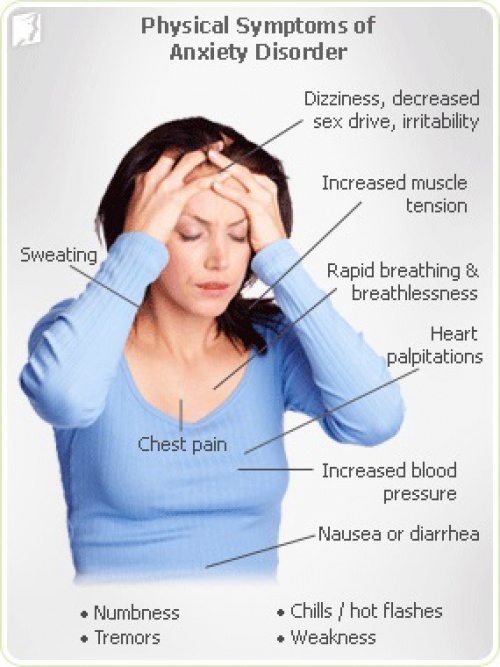
Mental stress activates your sympathetic nervous system, sending your body into fight-or-flight mode.
During this reaction, stress hormones trigger physical symptoms such as a faster heartbeat, quicker breathing, and constricted blood vessels.
Deep breathing exercises may help activate your parasympathetic nervous system, which controls the relaxation response (60, 61).
Deep breathing exercises include diaphragmatic breathing, abdominal breathing, belly breathing, and paced respiration.
The goal of deep breathing is to focus your awareness on your breath, making it slower and deeper. When you breathe in deeply through your nose, your lungs fully expand and your belly rises. This helps slow your heart rate, allowing you to feel at peace.
SummaryDeep breathing activates your body’s relaxation response, thereby counteracting some of the physical sensations of stress.
Having a pet may help reduce stress and improve your mood.
When you cuddle or touch your pet, your body releases oxytocin — a hormone that’s linked to positive mood (62).
Plus, studies show that pet owners — especially those who have dogs — tend to have greater life satisfaction, better self-esteem, reduced levels of loneliness and anxiety, and more positive moods (63).
Having a pet may also help relieve stress by giving you purpose, keeping you active, and providing companionship.
SummarySpending time with your pet is a relaxing, enjoyable way to reduce stress.
Although stress is an unavoidable part of life, being chronically stressed takes a toll on your physical and mental health.
Fortunately, several evidence-based strategies can help you reduce stress and improve your overall psychological well-being.
Exercise, mindfulness, spending time with a pet, minimizing screen time, and getting outside more often are all effective methods.
Just one thing
Try this today: Although there are many ways to reduce stress on your own, it’s important to get help when you need it.
If you’re experiencing overwhelming stress or symptoms of anxiety and depression, consider making an appointment with a therapist or visiting a trusted healthcare professional to discuss ways to improve your mental health.
Read this article in Spanish.
How to Reduce Nervousness in a Child — Snob
The general neuroticism of our society has increased quite significantly in recent times, for obvious reasons. The uncertainty of the near future - one's own, one's surroundings, one's country, the whole world - always increases it. This is especially true not for single people, but for families where adults feel responsible for the survival and well-being of not only themselves, but also someone else.
Many parents find it necessary to talk to teenagers about the causes and consequences of what is happening. In addition, adolescents themselves actively search the Internet for information they are interested in about ongoing events and try to comprehend it and even discuss it with their reference group - in the last two decades of the life of our country, unlike previous periods, it quite often includes one or even both parent of teenagers.
Most often, nothing is discussed with smaller children, but they are very curious and observant, interested in the world around them, listen carefully and partially understand the conversations of adults in the family and outside it, and based on what they hear, draw some conclusions of their own, from which they their personal picture of what is happening in the city, the country and the world is formed.
To very young children (2-5 years old) no one explains anything about the current global instability and says nothing intelligible about the events taking place in the world. In general, this is probably correct: how and in what words to explain to a four-year-old child something that you yourself, no matter how hard you try, cannot understand?
But as a result of evolution and selection, small children and all young mammals in general are very subtly and very strongly attuned to their parents, who have been living in this world for a long time and distinguish well between dangerous and safe.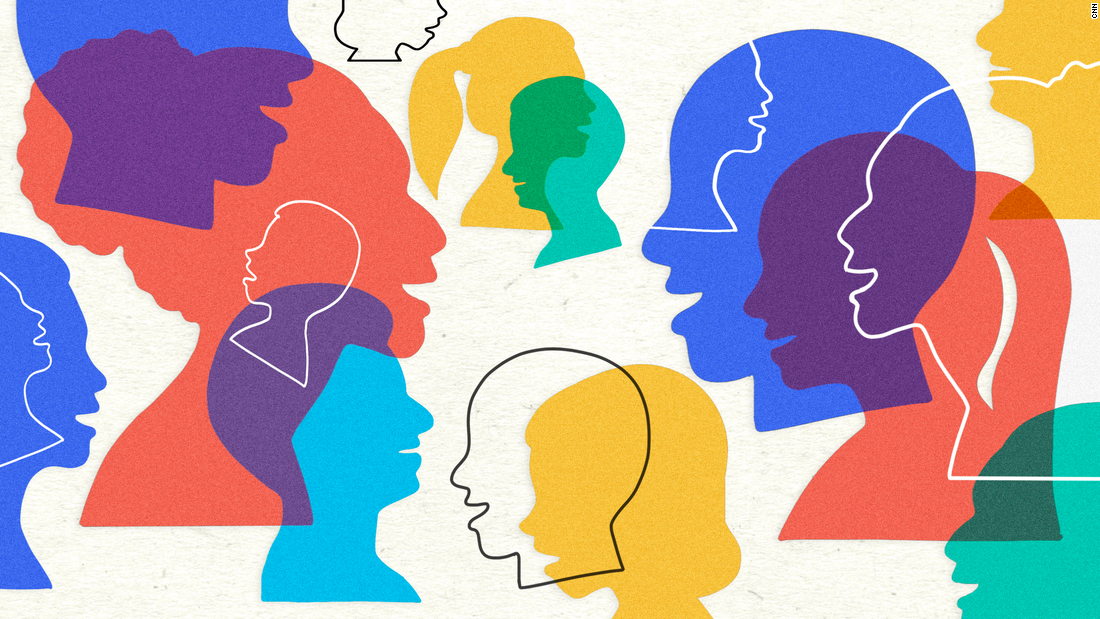 In nature, their (cubs) survival directly depends on this skill. After all, animals cannot tell their children anything, warn them about something or explain something. This means that the cub needs to scan the state of the adult animal all the time and regulate its behavior accordingly. If the mother-female is relaxed and calm, the cub can also relax and play. If adult members of the family are alert, you should immediately recognize their condition, be alert too and be ready to jump up and run at any second. If the female is afraid of something and shows it, you should also be afraid of it and not come close. If she trusts someone (something - place, food, source), you can trust too.
In nature, their (cubs) survival directly depends on this skill. After all, animals cannot tell their children anything, warn them about something or explain something. This means that the cub needs to scan the state of the adult animal all the time and regulate its behavior accordingly. If the mother-female is relaxed and calm, the cub can also relax and play. If adult members of the family are alert, you should immediately recognize their condition, be alert too and be ready to jump up and run at any second. If the female is afraid of something and shows it, you should also be afraid of it and not come close. If she trusts someone (something - place, food, source), you can trust too.
Our little children are pretty much little animals. The process of "humanization" in them has already been launched and is underway, but is still not far from the start. Therefore, the state of significant adults is read by kids “at once”. Mom is constantly “crazy”, having read the news, the father is alarmed, the whole family is alarmed - the child, to whom nothing is said and nothing is explained, this anxiety, alas, will not pass.
Above was the theoretical, "explanatory" part. In practice, I see the following: for the last six months and especially the last month, parents very often come to me with various neurotic manifestations that have first appeared in their young preschool children (from one and a half to six years old). Here is a rough list of symptoms:
- bites nails or picks at the skin near them,
- bites or sucks a corner of a blanket or the collar of a dress, shirt,
- picks at the navel,
- baby masturbation,
- tics, compulsive movements occurring for the first time,
- ,
- twists or plucks hair on the head or eyebrows,
- picks at scratches or sores (has not done this before),
- breaks things (sticks, etc.) into small pieces without any research purpose,
- nonsensical regular vocalizations (moans, sighs, squeals, coughs, repetitions of syllables, etc.).
I want to clarify right away: with all this, my parents came before, all 30 years of my practice. We are talking about a sharp increase in such cases. By the way, of course, I didn’t have any statistics, but, according to my recollections, when I just started working (it was the 90s), there were also a lot of such things - almost every second appeal. Then, along with the stabilization of social life, such violations noticeably decreased, and the reasons for parents with small children to contact us became much more diverse. And here it is again.
We are talking about a sharp increase in such cases. By the way, of course, I didn’t have any statistics, but, according to my recollections, when I just started working (it was the 90s), there were also a lot of such things - almost every second appeal. Then, along with the stabilization of social life, such violations noticeably decreased, and the reasons for parents with small children to contact us became much more diverse. And here it is again.
What is it? Roughly speaking, excessive psychomotor tension on the child's cerebral cortex. And the whole palette of various symptoms that we can observe is already a release, a resolution of tension. The body of the child copes with anxiety as best it can.
What to do with this family, parents?
First and foremost, of course, is to work individually with your own anxiety, your own tension. I don’t want to give any specific advice here, because I have already written more than once: what temporarily calms and relaxes one person significantly can infuriate and worsen the condition of another. Choose (practice, practice and again - practice!) your own, suitable, there are about a million options on the Internet.
Choose (practice, practice and again - practice!) your own, suitable, there are about a million options on the Internet.
Just one practical piece of advice: if you're already on the level of a panic attack, immediately leave the room with a small child and move to where there is a cat or dog (these are great stabilizers). Toddlers are too resonant, their brain can imitate your way of abruptly “dumping” and “discharging”. And why do you need it later, when everything outside gets better, a child or teenager with panic attacks about the deuce received or unhappy love?
By the way, many "average" children (7-12 years old), due to their mental stability and age-related optimism, may well be, on the contrary, "stabilizers" of the state of adults. They can be taught this, and they will do it with a pleasant consciousness of their usefulness and usefulness, and completely without harm to themselves.
Second. If you don't like the way your baby releases environmental stress, it can be redirected and/or replaced. There are three natural, universal “relaxants” inherited from our distant ancestors: water, sand and clay. Any games, respectively, with water, sand and clay relieve psychomotor stress. Organize the child from this list regularly what you can, and you will see the result. You can also get a special bowl for “twists in your hands” (this is if the child no longer puts anything in his mouth): pebbles, rosaries, screws, nuts, cones, shells, springs, chestnuts, any options for “fashionable twists” such as spinners and drinks, anything from different materials in one place. Most likely, something in the child’s hands will linger, distracting from an unpleasant symptom.
There are three natural, universal “relaxants” inherited from our distant ancestors: water, sand and clay. Any games, respectively, with water, sand and clay relieve psychomotor stress. Organize the child from this list regularly what you can, and you will see the result. You can also get a special bowl for “twists in your hands” (this is if the child no longer puts anything in his mouth): pebbles, rosaries, screws, nuts, cones, shells, springs, chestnuts, any options for “fashionable twists” such as spinners and drinks, anything from different materials in one place. Most likely, something in the child’s hands will linger, distracting from an unpleasant symptom.
Third. Make the world of the child extremely understandable and predictable for him "in the moment." Clearly and clearly, according to age, say "this is what we (our family) are doing now and this is what we will be doing in the near future." (Example: you and I will now go to the store and buy meat, porridge and chupa-chups there.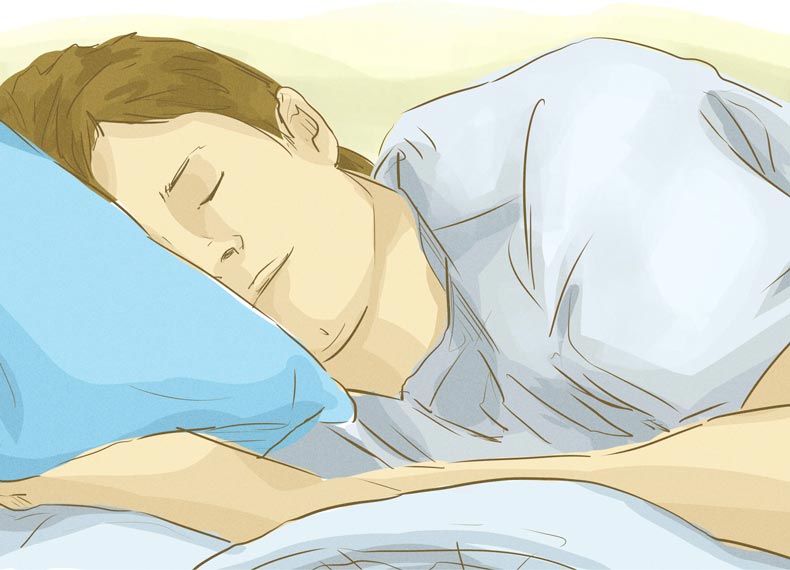 I will give you chupa-chups right away. We will not buy cars. Then I will take you to my grandmother and go to work. After work I will pick you up from my grandmother and we'll go home. Dad won't be there, he's gone on a long business trip. When he'll arrive, I don't know yet. You can Skype him tonight before bed, when you've had dinner and washed up.) No more details. Without unnecessary attempts to explain or, even more so, “agree”. Just informing. The world is not blissful, but it is always understandable by actions now and for the next short period of time. As a rule, this is enough for young children to feel confident enough and not go into neurosis.
I will give you chupa-chups right away. We will not buy cars. Then I will take you to my grandmother and go to work. After work I will pick you up from my grandmother and we'll go home. Dad won't be there, he's gone on a long business trip. When he'll arrive, I don't know yet. You can Skype him tonight before bed, when you've had dinner and washed up.) No more details. Without unnecessary attempts to explain or, even more so, “agree”. Just informing. The world is not blissful, but it is always understandable by actions now and for the next short period of time. As a rule, this is enough for young children to feel confident enough and not go into neurosis.
How to calm your nerves: 7 quick ways
Health
© Chester Wade/Unsplash
Author Uliana Smirnova
August 30, 2021
RBC Style shares proven methods that will help relieve emotional stress and calm down in a matter of minutes
Stressful situations happen to people almost daily. Lack of time, difficulties at work, illness of loved ones - all this can unbalance. At such moments, the heartbeat quickens, adrenaline is released, muscles tense up, breathing gets out of hand. However, the possibilities of the nervous system are not unlimited - its defenses are gradually depleted.
Lack of time, difficulties at work, illness of loved ones - all this can unbalance. At such moments, the heartbeat quickens, adrenaline is released, muscles tense up, breathing gets out of hand. However, the possibilities of the nervous system are not unlimited - its defenses are gradually depleted.
Prolonged stress can weaken the immune system, provoke nervous breakdowns, upset the psyche. According to doctors, many diseases arise precisely on the basis of nerves. For example, diabetes and bronchial asthma. Some experts even find a link between stress and cancer.
Protecting yourself from nervous situations is almost impossible. But learning to manage your emotions and relieve stress is quite real. Meditation, yoga and proper nutrition help a lot with this. But what about when you need to quickly pull yourself together? The main task in this state is to reduce the level of adrenaline in the blood. We talk about the most effective methods that will help calm the nervous system and return to a familiar state in a short time.
1. Restore your breathing
Deepening your breath for five minutes will help reduce adrenaline levels and relieve stress. The best-known method is to slowly count to ten or twenty while controlling your inhalation and exhalation. Straighten your back and straighten your shoulders. Breathe slowly, without jerks, concentrating on each breath. Try to stretch the exhalation and make it longer than the inhalation. After each respiratory cycle, there is a short pause of 3-5 seconds. This exercise increases attention, calms the nervous system and reduces stress. If you feel discomfort or dizziness, return to your usual breathing rhythm.
© Natalia Figueredo/Unsplash
2. Create a virtual image
The adrenaline rush will stop if you take your mind off the stressful situation and start thinking about something else. This method is useful when you are provoked to an outburst of aggression. Start remembering the multiplication table, your favorite poem, phone numbers and friends' birthdays. It is even better to connect the imagination and visualize thoughts, presenting them in the form of pictures, colored and as detailed as possible. Try to mentally draw a cozy cafe or sea coast. Try to feel how the water gently touches your body and takes away negative emotions. If possible, take a comfortable position, relax and close your eyes. To calm down, 4-5 minutes will be enough.
It is even better to connect the imagination and visualize thoughts, presenting them in the form of pictures, colored and as detailed as possible. Try to mentally draw a cozy cafe or sea coast. Try to feel how the water gently touches your body and takes away negative emotions. If possible, take a comfortable position, relax and close your eyes. To calm down, 4-5 minutes will be enough.
3. Go for a swim or shower
A warm, powerful shower will not only relax your muscles and improve circulation, but also calm your nerves. And half an hour in the pool will relieve stress after a working day. Another way to relieve emotional stress is to turn on your favorite music and take a hot bath. The effect will be enhanced if you add a few drops of soothing chamomile, lavender, tangerine or lemon balm essential oil to the water. If there is no time for long water procedures, wet your hands and run wet palms over your face, neck and shoulders. Cold water well tones the skin and soothes the nerve receptors. Alternatively, you can use a rose water spray to help freshen up.
Alternatively, you can use a rose water spray to help freshen up.
© Robson Hatsukami/Unsplash
4. Turn on the music and dance
Any physical activity can restore mental balance. For example, a half-hour run in the fresh air or an intense workout in the gym. Instead of exercise, you can dance, go for a walk, play badminton, or do some cleaning. During such a load, the brain produces neurotransmitters that are responsible for a good mood and reduce anxiety. It is the body's response to muscle stress. Scientists say that regular exercise is an excellent prevention of depression. And improving the appearance and physical performance will be a nice bonus.
5. Make tea with honey
A glass of clean water will help you quickly restore your normal heart rate and relax. You need to drink slowly - in short sips, taking short breaks between them. In addition to water, hot tea with dessert helps to cope with anxiety and irritation. Swallowing movements calm the nerves, and sweet stimulates the production of “happiness hormones”. At the same time, it is better to replace cookies and sweets with healthy treats. For example, honey, dried fruits or dark chocolate. The latter is good at removing cortisol and catecholamines that cause stress. You can add ginger root, a sprig of oregano, a few mint leaves or jasmine flowers to the drink - these additives are known for their calming effect.
Swallowing movements calm the nerves, and sweet stimulates the production of “happiness hormones”. At the same time, it is better to replace cookies and sweets with healthy treats. For example, honey, dried fruits or dark chocolate. The latter is good at removing cortisol and catecholamines that cause stress. You can add ginger root, a sprig of oregano, a few mint leaves or jasmine flowers to the drink - these additives are known for their calming effect.
© Rawpixel/Unsplash
6. Do a light self-massage
A good massage therapist will quickly relieve nervous tension and eliminate muscle clamps. If a professional master does not have time for a session, a relaxing massage can be done on your own. A large number of nerve endings are concentrated in the head. Wash your hands thoroughly, sit on a chair and start massaging your temples in smooth circular motions. Gradually move on to the scalp. The fingertips should slide freely over the surface (in the direction of hair growth) and not stretch the skin.


